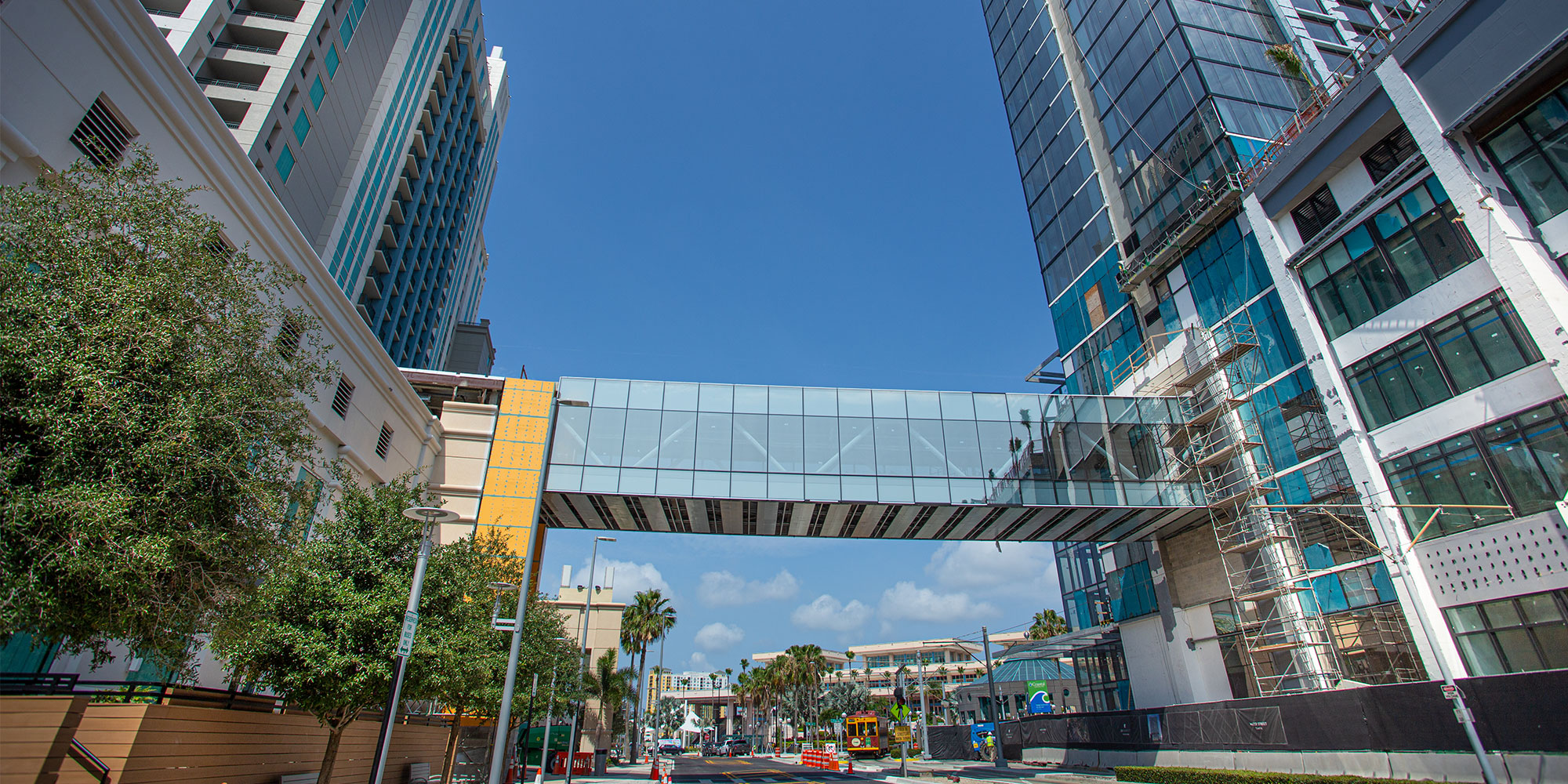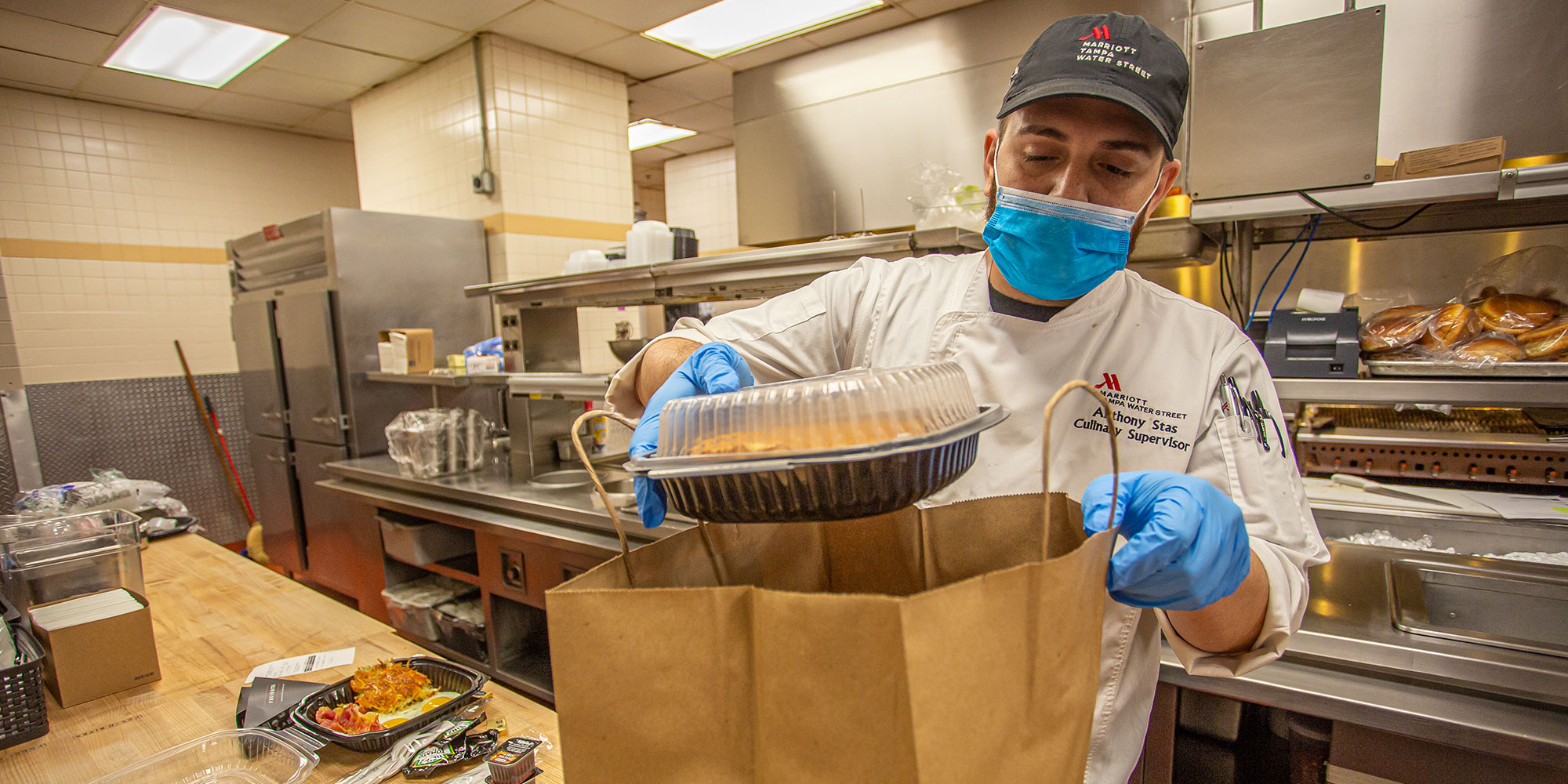Over the last few months, no segment of the economy has faced such disastrous disruption as hospitality and tourism. According to the Bureau of Labor Statistics, the leisure and hospitality industry saw three times as many job losses in a one-month period as the next closest industry, education and health services. In Florida, that translated to more than 88,000 direct hotel-related job losses — not accounting for the 305,000 hotel-supporting jobs that have been lost around the state.
“We had no business” once the pandemic hit, says Chris Adkins, the director of sales and marketing for the Marriott Tampa Water Street downtown. He estimates they were down to 10 or 15 occupied rooms per night, thanks to canceled conventions and a curtailed spring break season. That’s rebounded somewhat in recent weeks, with somewhere between 100 and 150 rooms booked on an average weekend night.
“Now it’s a lot of people escaping their homes for a change of scenery. Their needs are a little different,” Adkins says.
Most guests are looking to access the hotel’s pool and a kitchen other than the one in their home. The hotel’s restaurants have been closed since mid-March, with the exception of Starbucks, which reopened in May. Guests have a selection of menu items available to them for delivery to their room or contactless pickup in the lobby; they call down with their selections then receive a call back when their food is ready. Adkins says this system has worked “exceptionally well.”
The Marriott team is still in the process of determining new protocols for how they will handle certain aspects of typical guest experiences and amenities, though Adkins notes all staff is already wearing masks.

Something that has not been impacted by the pandemic is the construction timeline of the Marriott Water Street’s neighboring sister property, the J.W. Marriott. While some opening of some elements within the hotel may be shifted a bit, Adkins says, the hotel is still on schedule to open in the fourth quarter of this year. In a fortuitous bit of planning, furniture, fixtures and equipment had already arrived and were placed in storage before the pandemic hit, so guest rooms are approximately 75% complete, Adkins estimates, and will be ready for a busy first quarter of 2021 that is slated to see a number of large conferences and, of course, the Super Bowl.
Adkins and his team are already looking ahead to how best serve guests in a socially distanced future. They are partnering with an audio-visual company to put together virtual wedding packages that would see a dinner, ceremony and celebration held at the hotel with a small group and live-streamed to guests around the country.



